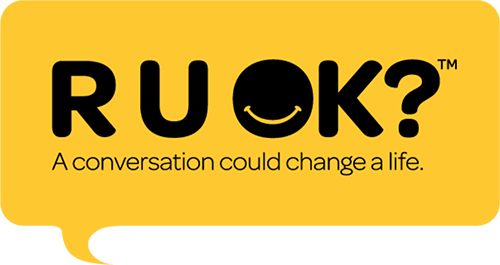Mental Health & Wellbeing
Your mental health is just as important as your physical health and there are many people who understand what it is like to not be feeling like yourself or not coping with things.
 The support organisations listed below provide services and understanding people (many available 24/7) who can help you start to understand why you might be feeling the way you are and may help you find ways that work for you to start feeling better. If you would prefer to speak to someone who already knows you, then please consider going to see (or ask your parents to take you to see) your family Doctor as they can listen to your concerns and offer advice or even give you a referral to see a counsellor or another professional who can assist and support you. Ask your family Doctor about seeing a counsellor under a Medicare treatment plan as this can help you receive care and support from local services.
The support organisations listed below provide services and understanding people (many available 24/7) who can help you start to understand why you might be feeling the way you are and may help you find ways that work for you to start feeling better. If you would prefer to speak to someone who already knows you, then please consider going to see (or ask your parents to take you to see) your family Doctor as they can listen to your concerns and offer advice or even give you a referral to see a counsellor or another professional who can assist and support you. Ask your family Doctor about seeing a counsellor under a Medicare treatment plan as this can help you receive care and support from local services.
Helplines & Support Services
- Lifeline 24/7 telephone support – 13 11 14
- Lifeline online Crisis Chat
- Lifeline website
- Beyond Blue 24/7 telephone support – 1300 224 636
- NSW Mental Health Line – 1800 011 511
- eHeadspace – 1800 650 850
- Suicide Call Back Service – 1300 659 467 – Free 24/7 phone counselling
Getting Help for Mental Health
If you or someone you know is worried about a mental health issue, the first step is talking to a healthcare professional. Your local doctor (general practitioner or GP) can conduct an initial mental health assessment and may refer you to a counsellor or specialist depending on your individual needs. If you are under 18 then talk to your parent, guardian or carer about how you are feeling and ask them to take you to your doctor.
It is important to be honest with your doctor about your feelings and behaviour so that they can give you the best treatment.
Tell your doctor:
- your symptoms, thoughts and how you feel
- any circumstances that may be relevant to your mental health
- your concerns (including privacy concerns)
- how what you feel has affected your life
Talking about your mental health can be hard. You can take a family member or close friend along for support. They can also help explain your situation to the doctor, and they can help remember the discussions you had.
Further information is available on the Mental Health – Where to Get Help section of the Health Direct website.
What club committees can do
Specifically, when it comes to mental health Clubs should consider the following:
- Sport clubs are a great place to help break down stigma and start conversations on mental health.
- Offer free talks or training to members
- Have mental health days or dedicated rounds to raise awareness
- Partner with local mental health agencies and support services.
- Club leaders should proactively discuss:
- Creating a mentally healthy workplace for your volunteers and staff
- Creating positive environments for sports participation
- Being inclusive and supportive of people with mental health issues.
Do this by considering:
- Having a good understanding of mental health yourself – be a role model
- Training and educating key people in your club on mental health
- Discussing mental health and risks for your club at meetings
- Develop, adopt and enforce policies and codes which support positive environments (eg. anti bullying)
- Ask members for ideas and listen.
Youth Support Helplines & Websites
Online Youth Forums
Club Programs & Resources
- R U OK? – resources for sports teams and coaches
- Orygen (National Centre of Excellence in Youth Mental Health) – mental wellbeing in community sport toolkit
- Orygen Supporting Mental Health in Community Sport resource – Toolkit for Sports Clubs
- Mental health benefits of playing team sport
- Mental health & wellbeing in community sport
- Supporting mental wellness in sport